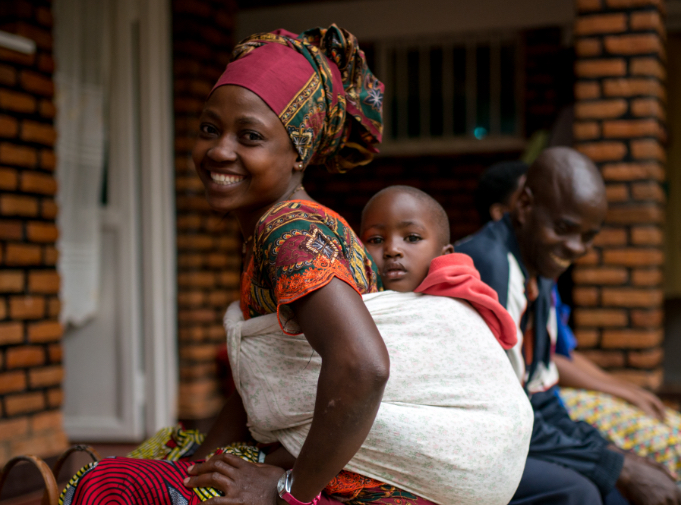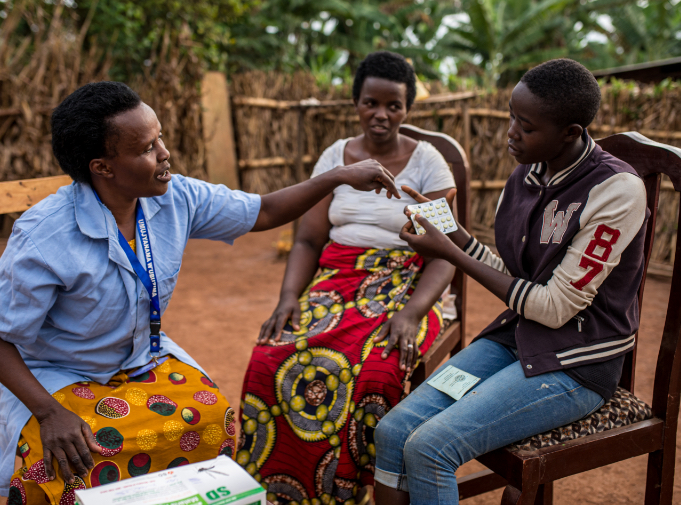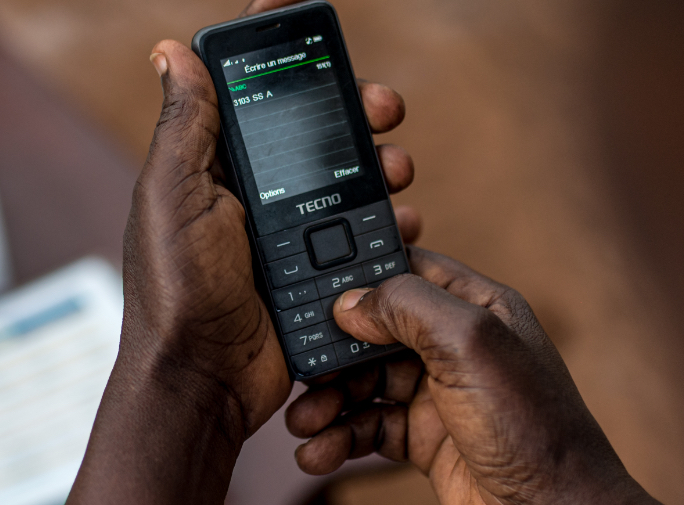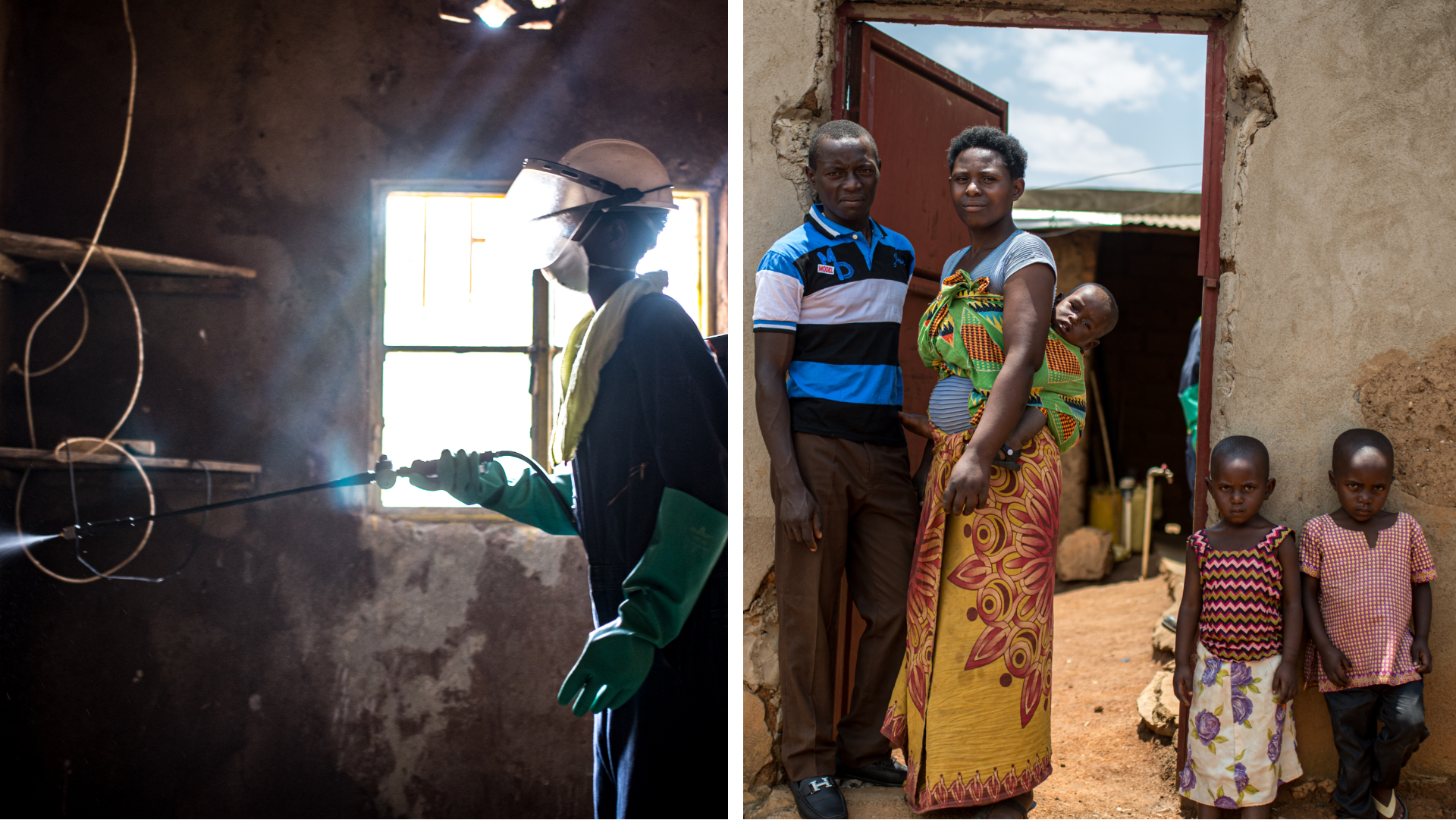A Transformative Partnership in Rwanda's Fight Against Malaria
By Malaria No More | 11.30.20
Share:
When Dr. Lisine Tuyisenge was applying to medical school more than 15 years ago, Rwanda had the world’s highest child mortality rate and lowest life expectancy. A few years later, when she began her rotations as a pediatrician at Rwanda’s University Teaching Hospital, the wards were so crowded with malarial patients, her listless and fevered patients slept two to a bed.
“Malaria was the first cause of death, of hospitalization, of morbidity and mortality,” said Dr. Tuyisenge. “Malaria was a big challenge for pediatrics… We had many deaths and many emergencies.”
Today – just 15 years after she first took up her stethoscope in the hospital’s wards – her country’s health outcomes have been transformed. Rwanda’s under-five mortality has declined 67 percent and is now among the lowest in sub-Saharan Africa. Rwanda’s life expectancy is among the highest in sub-Saharan Africa and approaching the global average. Driving these changes is a historic reduction in malaria.
The future of this country is good. The new generation will live in a country without malaria… without this killing disease.”
– Dr. Lisine Tuyisenge, University Teaching Hospital, Kigali
What drove this progress is one of the best U.S. global health programs that most Americans probably never heard of – the President’s Malaria Initiative (PMI). Since it was launched in 2005, by President George W. Bush, PMI has demonstrated an extraordinary return on U.S. investment in Rwanda and beyond. Working in partnership with governments in Rwanda and 23 other sub-Saharan African countries and three Southeast Asian countries, PMI helped reduce the severe impact of malaria around the world. Over the last 15 years, PMI’s work contributed to global efforts that saved more than seven million lives and prevented more than one billion malaria cases.


The U.S. President’s Malaria Initiative, working in close partnership with government of Rwanda, has contributed to saving the lives of pregnant women and children under 5 from malaria, ensuring a brighter future for a generation of Rwandans.
In Rwanda, PMI helped the country access a suite of cutting-edge tools for malaria prevention, detection, and treatment. Supplemented with steadily increasing domestic funding from the Rwandan government, PMI support helped the country scale up the use and delivery of life-saving interventions such as spraying more than 230,000 homes with powerful insecticides, distributing more than five million insecticide-treated nets, performing nearly 2.4 million rapid diagnostic tests, and treating nearly 5 million malaria cases with the most advanced medicines. Evidence of PMI’s impact can be found in nearly every Rwandan home. In 2005, only 15 percent of Rwandan households had a bed net to protect against malaria-carrying mosquitoes which are active at night. By 2018, 84 percent of households had a long-lasting insecticide treated bed net. These simple yet effective bed nets are responsible for preventing 68% of the malaria cases in Africa since 2000.

But the benefits of PMI’s support extends well beyond bed nets. PMI also helps countries strengthen their health system by building data and SMS systems to track and manage malaria outbreaks and treatments, and training healthcare workers on best practices for malaria prevention, detection, and treatment. With PMI’s support, Rwanda developed game-changing innovations such as using drones to deliver malaria diagnostics and medicine to remote communities. Rwanda also expanded access to malaria diagnosis and treatments across Rwanda by increasing the number of community health workers like Stephanie Nyirahumure in every village. In the story of Rwanda’s fight against malaria, community health workers, like Stephanie, have played a leading role.


Community health workers, like Stephanie Nyirahumure (left), play a vital role in the fight against malaria by providing early malaria testing and treatment and tracking data to help monitor malaria prevalence in their communities.
Nominated by their community to serve as volunteers and provide services for free, Rwanda’s 60,000 community health workers, the majority of whom are women, have made malaria prevention and treatment accessible to every Rwandan for the first time in the country’s history. As a result, malaria is much less common. Where it exists, it is caught early and treated effectively, with severe cases and medicine stockouts communicated immediately via SMS to health officials in the capital. This means fewer children suffer repeated malaria infections and pregnant women, for whom malaria can be life threatening, are surviving and delivering healthy babies. “Before starting this program of health workers, the citizens were always busy taking care of their sick children. People couldn’t work because of lining up at hospitals,” said Stephanie, who has served her neighbors as a health worker since 2017. “But now when they get sick, they come here, we treat them in a short time. Then they can continue their daily activities.”
Before starting this program of health workers, the citizens were always busy taking care of their sick children. People couldn’t work because of lining up at hospitals… But now when they get sick, they come here, we treat them in a short time. Then they can continue their daily activities.”
– Stephanie Nyirahumure, Community Health Worker
That has helped boost incomes for families like Marceline Mukamurenzi’s. “Thanks to this program we have no more malaria,” said Marceline, a mother of three. “All the money we used to spend in healthcare because of malaria, have been saved for other things… That money was used to build this house, we now have a nice house, better than the one we had before. And we have water. Because of this program, that the government has introduced about fighting against malaria, we now have a better life.”

Marceline Mukamurenzi (right) stands with her family outside their home while a team of IRS sprayers get to work protecting their homes with effective insecticides (left). Since 2016, more than 915,000 residents of Rwanda have been protected from malaria via Indoor Residual Spraying campaigns, funded in part by PMI.
And children are missing school less often. In fact, an entire generation of Rwandans are coming of age having never been infected with malaria. That was unimaginable just 15 years ago, said mother of two Aimeé M Umujeni who founded a women’s cooperative in Kigali. “Either of my kids, they didn’t have malaria,” said Aimeé. “One, she’s seven. The other, she’s 10. And from when they were born, they never had malaria.” With continued PMI support, Rwanda is on track to achieve what was previously unthinkable – ending malaria within a generation.
Already, Aimeé’s and Marceline’s children and those in villages across this country have a better chance to survive and thrive than at any other point in Rwanda’s history. And Dr. Tuyisenge’s pediatric ward is no longer overflowing. “The future of this country is good,” said Dr. Tuyisenge. “The new generation will live in a country without malaria…without this killing disease.”
Powered by: With Support From: